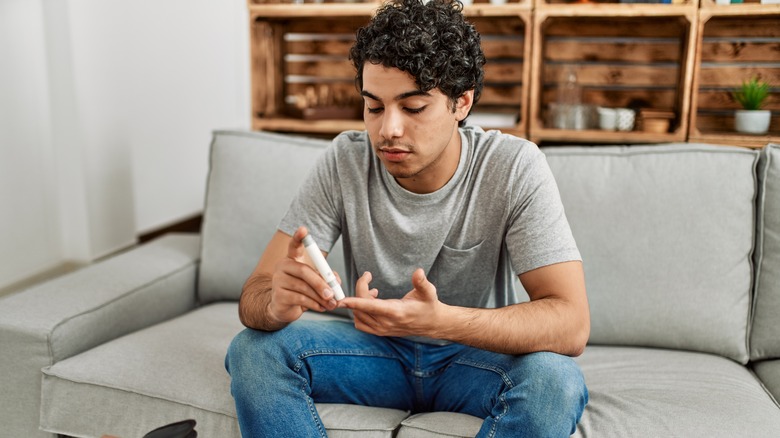How To Prevent Hypoglycemia If You Have Type 1 Diabetes
Type 1 diabetes is a chronic condition that requires ongoing management to maintain healthy blood sugar levels. People with Type 1 diabetes must carefully balance their insulin doses with their food intake and physical activity level. This requires careful planning and attention to detail, as too much insulin can cause low blood sugar (hypoglycemia), while too little insulin can cause high blood sugar (hyperglycemia).
For this reason, people with Type 1 diabetes must monitor their blood sugar levels regularly, often multiple times a day. This involves pricking a finger and testing a drop of blood with a glucose meter to determine blood sugar levels. The process can be time-consuming, inconvenient, and painful for some people. Monitoring insulin doses can also be challenging, particularly when there are changes in routine or unexpected events occur. Nevertheless, it is a vital part of managing Type 1 diabetes, and important to understand to prevent conditions like hypoglycemia.
What causes hypoglycemia?
Hypoglycemia is characterized by abnormally low blood sugar levels, typically below 70 milligrams per deciliter (mg/dL). This condition can occur in people with diabetes, particularly those who use insulin to manage their disease. There are several potential causes of hypoglycemia in people with diabetes. One common cause is an imbalance between exercise, food intake, and medications — blood sugar levels may drop too low if there's bad timing when taking insulin medications and eating carbohydrates. When blood sugar levels drop too low, the body may not have enough energy to function properly — this can lead to a wide range of symptoms, including sweating, shakiness, confusion, dizziness, hunger, and irritability.
In severe cases, hypoglycemia can cause seizures, loss of consciousness, coma, and even death. Other potential causes of hypoglycemia include increased physical activity, alcohol consumption without eating, and certain medications, such as beta-blockers. Diabetes patients should discuss these risks with their doctor.
How to prevent hypoglycemia with Type 1 diabetes
If you have Type 1 diabetes, it's important to have a plan to prevent hypoglycemia. It may help to keep track of low blood sugar episodes to make planning easier. Regular monitoring of blood sugar levels will also help you identify and address low blood sugar levels before they become severe. The National Health Service recommends using a continuous glucose monitor (CGM). If you need to adjust your insulin dose, frequent blood sugar testing will also help you understand the vital changes needed in your diabetes management plan. Insulin doses are sometimes prescribed based on activity levels, diet, and other factors affecting blood sugar levels, per EndocrineWeb. Again, this will require your doctor's approval and assistance to prevent further unwanted side effects.
Consistent meal planning might also help people with Type 1 diabetes maintain stable blood sugar levels and prevent hypoglycemia. Work with your doctor or a registered dietitian who can develop a meal plan that meets your individual needs and preferences.



